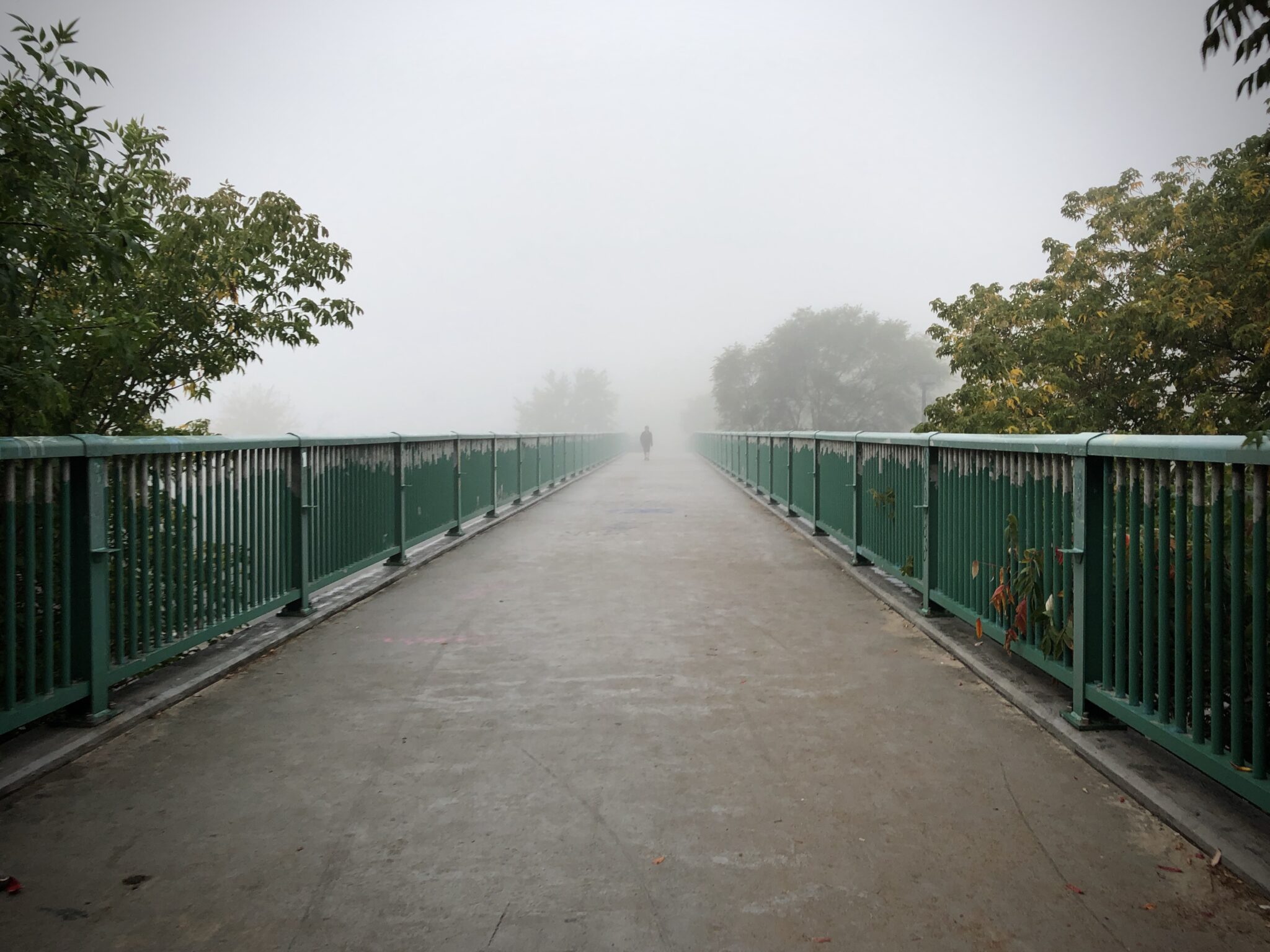Posts Tagged ‘intellectual disabilities’
Katie – Triggers
Katie – Triggers
Katie talks about grief triggers and mental health triggers
Grief Literacy and Developmental Disability
By Carrie Batt, Grief Educator
Grief literacy has become a popular topic, yet it is a topic that is untapped within the disability community, specifically within the developmental sector. The sector supports and empowers people with a developmental disability and consists of families, their loved ones and service providers.
Within the sector there are very few conversations, education, or shared expertise about grief, loss, and disability. The pandemic brought to light the sheer lack of education and support that exists about grief, loss, and disability. My way of dealing with such a realization was to try to make a small change, which began by forwarding a proposal to my employer, requesting that we offer grief literacy sessions. The proposal was accepted, and we successfully offered four 1-hour grief literacy sessions, which reached a total of 20 participants. What we learned in offering these sessions was the value of learning new language to help in expressing and describing their grief experiences as, often, people with a developmental disability have grief stories that so often are unacknowledged and go unnoticed. Their grief histories are often extensive, and very painful. The painful history of the grief experienced amongst people with a developmental disability that begins with the atrocities of the institutions, the Huronia Regional Centre, The Ontario Hospital School, and The Orillia Asylum. The magnitude of such grief and loss has only recently been made public.
There is such an enormous amount of grief and the loss that until recently was unnoticed. Such unacknowledged grief within the developmental sector is far more common than ever imagined, especially when we include that of our direct support workers. Currently their grief is unheard of. Consider for a moment, supporting someone for ten years in their home, and when the supported person dies, cleaning out their room to prepare it for the next person to move in, and doing so without any recognition of your personal grief. Such scenarios play out daily within our developmental sector and just being expected to carry on with the work is the norm.
With that said, the reality remains that the developmental services sector can only benefit from receiving support and guidance from the bereavement support services sector. Such a partnership would help to bridge the gaps and begin dedicating resources towards, training education, and understanding about grief, loss and disability.
Cara – People with intellectual disabilities need to be recognized and honoured in their grief
Cara – People with intellectual disabilities need to be recognized and honoured in their grief
Cara talks about grievers living with intellectual disabilities and that it’s not about those of us who are neuro-typical, giving them a voice or providing them or saying things for them. Rather, it’s that they already have a voice. They already have these experiences and they want them to be recognized, acknowledged and honoured.
Cara – Grief and intellectual disabilities is a topic that needs to “get out there”
Cara – Grief and intellectual disabilities is a topic that needs to “get out there”
Cara shares some information from a participant in her research on intellectual disabilities and the bereaved. A person with an intellectual disability said… “Grief: It’s a topic that needs to get out there” Grief is something that so many people are hesitant to talk about, to display, to show, because there’s so many social rules around how we grieve. This is particularily challenging for the intellectually disabled.
Cara – Intellectual disabilities and advance planning
Cara – Intellectual disabilities and advance planning
Cara explains that people living with intellectual disabilities are growing to older ages, much like the rest of the population. And as folks are aging what we’re seeing is the need for families more so than ever, to do some advanced planning for who will take over any caregiving decision making or where that person may live, what sort of support they may need and what that’s going to look like after the parents or the guardians die so that this doesn’t become a crisis situation.
Cara – Intellectual disabilities, sharing and expressing about grief
Cara – Intellectual disabilities, sharing and expressing about grief
Cara discusses how it’s very important that people living with intellectual disabilities have the opportunity to not only know about the information about the person being ill and dying and having the choice and opportunity to go to after death rituals. It’s also really important that they get the opportunity to share their story in whatever way they communicate. This can be verbally through sign language, through communication books, art, music, going for walks, being in nature
Cara – The real issues for grieving people with intellectual disabilities
Cara – The real issues for grieving people with intellectual disabilities
Cara provides some context for the real issue of grief in the lives of people with intellectual disabilities and those supporting them, including that we consider that there’s not a lot of education or information out there about how best to support someone with an intellectual disability who is grieving.
Cara – My story with intellectual disabilities and grief
Cara – My story with intellectual disabilities and grief
Cara talks about how she came to see how people with intellectual disabilities need to be supported in grief
Cara – Defining Intellectual disabilities and grief
Cara – Defining Intellectual disabilities and grief
Cara discusses how grief literacy needs to be improved across the board for people with intellectual disabilities to learn more about grief, death and dying. There is a great need to include them in this natural, normal part of life that we’ll all experience.
Grief and Parenting in the Disability Community
By Carrie Batt, Grief Educator
Parenting is complicated as it has so many twists and turns. There are a variety of parenting styles such as hovering, free and easy, and everything in between. The one thing parents have in common is the fact that parenting never ends, thought it changes. Many parents can look forward to their child changing as they age and gain independence. Parents often look forward to and are proud of their child leaving the nest. Yet for many parents with children who have developmental disabilities, that is not the case. These parents must offer unwavering support, care, and guidance to their child or children who live with disabilities.
These are parents who are relied on in various ways, being the primary caregiver and managing everything. Some parents aging into their 70s, 80s, and 90s remain the sole primary caregiver to their child. Their day-to-day parenting tasks have never ended as their child has grown into adulthood. In fact, for some, their parenting roles increase as their child ages and may begin to lose daily living skills, develop early-stage dementia, show signs of aging or illness, begin to regress in specific areas or require much more support. Some parents must also cope with the fact that their child may be experiencing mental health issues in combination with a developmental disability. This is a most unique parenting experience as it is all-consuming. Such parenting speaks to a level of commitment and unconditional love where unwavering support is a constant.
In conjunction with these realities, there are times when such parents become a part of the end-of-life and palliative care communities. Once their child with a disability is diagnosed with a life-limiting illness, the only choice is to navigate end-of-life care, and there is no road map for what these parents will be embarking on. When it comes to death, dying and disability there is no education or expertise readily available. The same is true for grief, loss, and disability. Currently there are few disability-sensitive supports for such families who are having to transition from being the primary care giver to preparing for the impending death of their child.
The grief surrounding these realities have yet to be spoken of or integrated into the bereavement services and are rarely acknowledged within the developmental sector. The same is true of the reality faced when a child with a disability must face to mortality of their parents and primary caregivers, as for many of these children they may never have left the family home.
This is a type of grief most cannot imagine. This type of grief has not yet been recognized, validated, and honoured. There has been no space made within our grief support services that speaks of the magnitude of the grief surrounding these families. My hope is that the light can shine to meet these needs in the developmental sector for the families we serve.
Teresa – Intellectual disabilities grief and time to process
Teresa – Intellectual disabilities grief and time to process
Teresa explains the importance of giving time when communicating with people who have intellectual disabilities
Teresa – Main issues with intellectual disabilities and grief
Teresa – Main issues with intellectual disabilities and grief
Teresa shares some of the main issues that people with intellectual disabilities in grief such as communication and size of their circles


